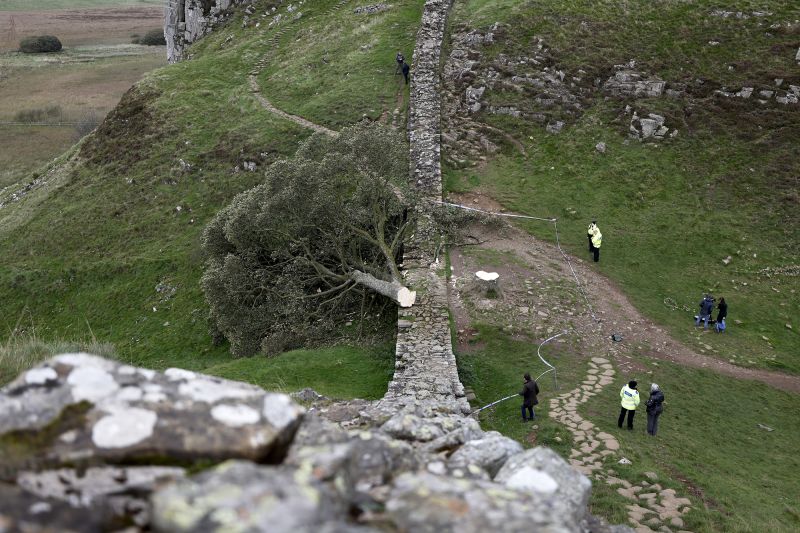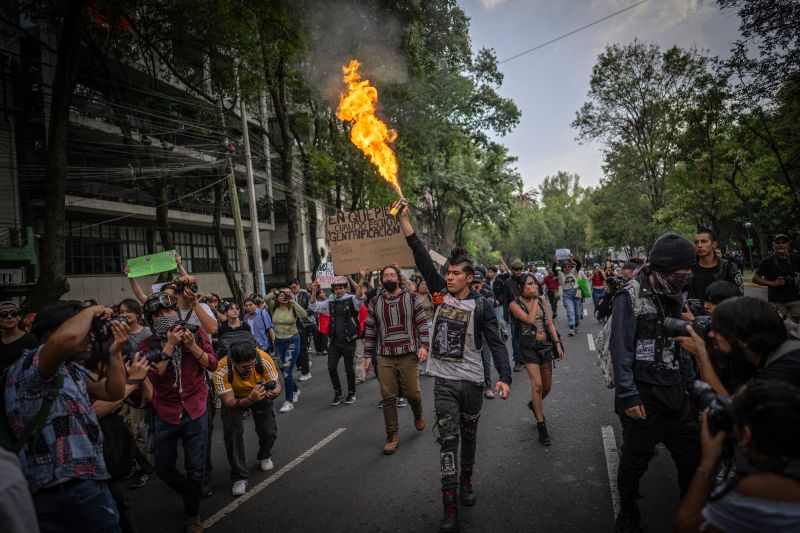
Flights resumed at Israel’s Ben Gurion Airport near Tel Aviv after a failed interception of a missile from Yemen on Sunday forced it to halt operations temporarily.
Israel’s military said the missile landed in the airport’s vicinity after “several attempts” at intercepting it failed, adding that “the results of the interception are under review.”
The Iran-backed Houthi rebel group in Yemen has repeatedly launched ballistic missiles at Israel, but this appears to be the first time one has landed near the country’s main international airport, a major breach of security at a tightly protected site.
“We will attack whoever attacks us sevenfold,” Israel Katz, the defense minister, said in a statement.
The attack prompted the airport to briefly suspend flights. Trains to and from the airport were also halted and police asked the public to refrain from arriving in the area.
The incident underscores the Houthis’ continued ability to strike distant targets despite a sustained US military campaign and may raise questions about Israel’s capacity to intercept such attacks.
Pictures from the scene showed debris from the impact of the missile on the grounds of the airport, littering the road toward the main terminal. A video shared on social media appeared to show the impact of the missile at the airport and a cloud of black smoke rising from the strike.
Sunday’s strike marks the third consecutive day of missile launches from Yemen toward Israel, according to the Israel Defense Forces.
The Houthis have not claimed responsibility for the latest missile, but a spokesman for the militant group has said previous launches targeted military facilities in Israel. Yahya Saree said over the weekend that the rebels fired “Palestine 2” ballistic missiles “in support of our brothers and sister in Gaza.”
Israel has carried out several strikes against the Houthis in Yemen, including the targeting of a power plant and maritime ports in January.
The US military has carried out far more extensive strikes on Houthi targets in Yemen in recent weeks, aiming to the group, whose attacks on Red Sea shipping have significantly disrupted global trade.
The campaign is also aimed at stopping launches targeting Israel, as well as commercial and US Navy vessels operating in the Middle East. Early last month, the cost of US the effort had approached $1 billion in just three weeks, including the deployment of B-2 stealth bombers and the use of hundreds of millions of dollars’ worth of high-end munitions.
But it has largely failed to disrupt the Houthis’ ability to launch ballistic missiles against Israel. The country’s vaunted missile defense system routinely intercepts the launches, but some have gotten through.
This is a developing story and will be updated.








